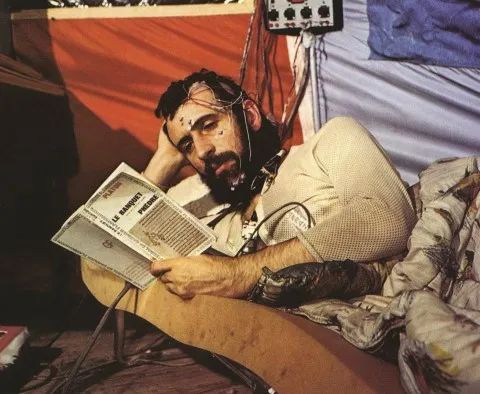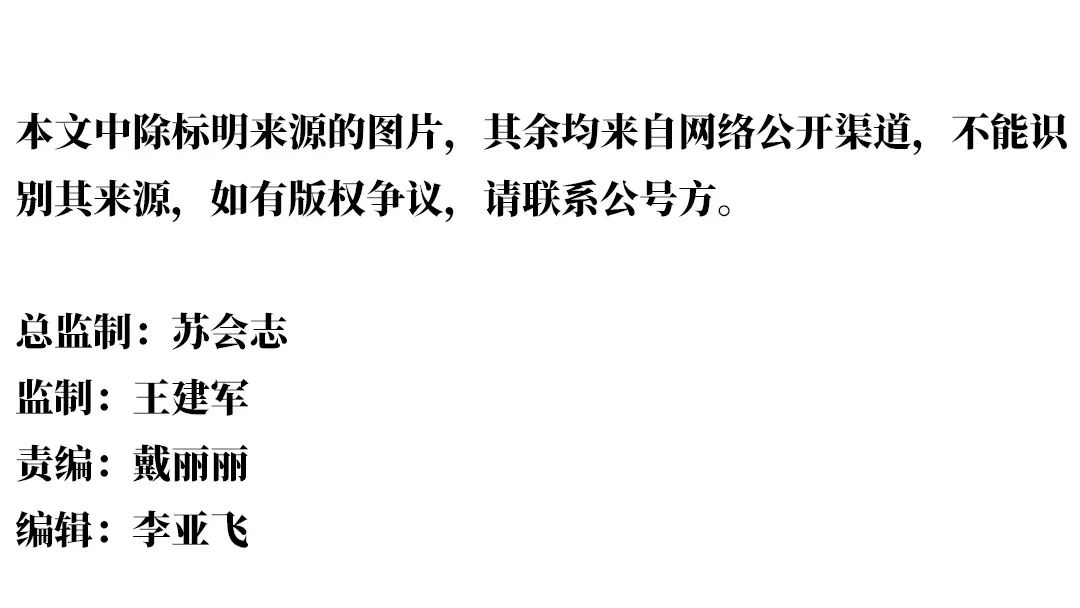Human tooton experiments in the cave
Author:Look at the think tank Time:2022.08.14
One day in 1972, a young man was lying in a dark hole to think about how to commit suicide.
As long as you die, you can be relieved from this dark supervision. Or, at least one leg is broken, right? Can you take more dust in the hole, can you get your lung disease? In that case, you can leave here logically ...
However, he was not imprisoned here.
He completely voluntarily entered the cave just to complete a scientific experiment on "time".
Text | Window knocking rain
This article is reproduced from the WeChat public account "fruit shell" (ID: guokr42). The original first published on August 12, 2022. The original title was "6 months in the deep floor, he killed his only partner", which does not mean Watching think tank viewpoint.
1
Isolated from time
The name of the person in the cave was Michel Siffre, who was a French scientist at the age of 33.
Sever was originally a geologist, but at this moment his research object was not rock, but himself in the cave. The theme of the experiment is to observe how the human "endogenous clock" works.
Usually, under the influence of outside light and clock, people live a regular life with 24 hours.
However, if all the external clues about "time" disappear, what will happen? Will the human body know when to wake up and when to sleep? Sever lives in a cave without sunlight, away from the clock and calendar, it is the answer to this question.
Similar experiments have been conducted several times, and Sever himself has participated for the second time -but this time, his challenge time is the longest ever. The formal experimental period is 6 months. In addition to some subsequent observations, Sever will live in the dark ground for 205 days.
On February 14, 1972, Sever entered the "Midnight Cave" in Texas, the United States, and began a long ground life.
There are "absolute darkness, complete silence" here, and the light bulbs are the only light sources in the cave. Sever estimates the days by sleeping and waking up, and the concept of time disappears completely from his life. The only connection with the outside world is a telephone line, and the other side of the phone is connected to the back -supporting team on the ground.
Every day in the cave is quite busy. Sever takes a few hours for tedious daily measurements and reports his own situation by phone. He recorded blood pressure and body temperature, monitored ECG and Electric Electric Signals, test vision changes with air gun targets, and completed a series of cognitive tests.
He frozen urine -like into the refrigerator and put the shaved beard stubble into the envelope with numbers -after these materials will be sent to the laboratory to analyze the changes in hormone levels.
He lives in the nylon tent and survives with frozen food. In his spare time, he wrote a diary, reading, or listening to music to pass the time.
At first, everything seemed to be smooth -at this time, Sever hadn't realized what kind of abyss he was going to fall in the next few months.
2
Mental collapse
Time has gradually passed, the daily daily life seems more and more boring, and loneliness gradually erodes Sever's heart.
His valuable recreation items were severely damaged: the vocalist player playing music was broken a month, and books and magazines were quickly moldy in the wet caves.
"I am experiencing the lowest valley of life," he wrote such a sentence in his diary. His vision gradually decreased, his memory became darker, and his brain could not sort out any clear thoughts.

Siffre read in the cave -however, the book has not saved his spirit of gradually collapse | M. Siffre
Why waste life on this damn experiment? Sever suddenly fell into a serious self -doubt. He tore off the monitoring electrode on his body, yelled at the colleagues at the other side of the phone, "I have enough" -the progress of the experiment at this time.
He began to think about how to commit suicide and camouflaced the scene into an accident -so that he could be relieved, while retaining a little dignity as a scientist.
Sever struggled with these crazy thoughts for about 10 days. In the end, he calmed down, re -posted the electrode, and continued to insist on the experiment. He needs to be responsible for researchers, and also needs to be responsible for his family.
This experiment has already spent the funds raised and seriously overdue. If you die, the family will carry a high debt -it is it to think of this that seeds to dispel the idea of suicide.
Sever continued to live lonely in the cave -until one day, he found a mouse.
He is eager to approach the small animal because only it can become his own companion. He named the mouse "MUS" and spent several days to observe its every move. He secretly calculated how to grab it and raised it as a pet.
He coated the jam as a bait on the ground, watching his new friend carefully approaching. When the mouse finally relaxed his vigilance, Sever raised a deep baking sheet and fastened it towards it. He was so excited -finally, he was accompanied by himself.
However, raising the baking sheet, Sever saw a heartbreaking scene -Mus died on the spot, lying in the jam and motionless. Obviously, Sever lost his hand, and he accidentally smashed the mouse with a heavy baking tray. "Sobs disappeared, it was lying in place, and desperately shrouded me." He wrote in his diary.
Fortunately, a few days later, Sever received a call from colleagues -the experiment was finally over.
3
What did the experiment discover?
This experiment was expected to observe the results: In the long cave life, his "inner clock" changed subtle changes.
In the first five weeks of the experiment, he lived with a "daily" cycle for 26 hours a day, and gradually caused jet lag to the outside world.
This is consistent with the previous observation results -in such experiments, scientists have found that human "internal cycles" are always longer than 24 hours, and there are individual differences.
After that, Sever's rhythm has changed a more amazing change: sometimes his sleep-awakening cycle will suddenly be extended to 40-50 hours, but he himself does not realize such great changes.
However, the more important discovery may be that this experiment vividly shows the harm of "social isolation" to human mental health.
Nowadays, more studies have confirmed that long -term isolated living conditions from society will increase the risk of depression, suicide, harm cognitive function, and make people more likely to suffer from chronic diseases.
After leaving from the cave, Sever spent several months before recovering from depression. Due to the severe overtaking of the experiment, he carried a $ 100,000 debt and had to leave the field of time biology research.
However, even so, the scientist still retains emotions about cave experiments and made the third challenge at the end of 1999.
At that time, he was 60 years old and wanted to observe whether the age growth had an impact on the "inner clock".
Sever ushered in the new millennium in the silent cave -but he didn't know when he was isolated from time.
Further reading:
Human tooton experiments in the cave
Text | Joshu Foer, Michel Siffre
This article is reproduced from the WeChat public account "Livatin" (ID: liweitan2014). The original first published on October 29, 2021. The original title was "Human Told Experiment in the Cave", which did not represent the viewing think tank view.
In 1962, a French cave scientist named Michel Siffre spent two months in a completely isolated underground cave. To. He only eats when he is hungry, and sleeps when he is sleepy. His goal is to find out how the natural rhythm of human life will be affected when living "outside time".
In the next ten years, Sever organized more than a dozen underground time isolation experiments. Finally, in 1972, he personally returned to a cave in Texas for six months. Essence His work helped create the field of Human Chronobiology.
Joshua Foer interviewed Sever via email.
Joshua Form: In 1962, you were only 23 years old. What makes you decide to live completely and isolated from the world for 63 days?
Michelle Sever: You must understand that I am a trained geologist. In 1961, we found an underground glacier about 70 kilometers at the Alps in about 70 kilometers. At first, my idea was to prepare a geological survey once, and it took about 15 days to study this glacier in the ground, but after a few months, I said to myself, "Oh, 15 days are not enough. I can’t see anything. I can’t see anything. I can’t see anything. . "So, I decided to stay for two months. Then I had this idea -it became the idea of running through my life. I decided to live like animals: no watches, live in darkness, I don't know time.
Form: In the end you no longer study the cave, but you have studied time.
Sever: Yes, I invented a simple scientific experimental plan. I sent a group of personnel to stay at the entrance. I will contact them before I get up, and before eating. My team has no right to contact me, so I can't know the time outside. Unconsciously, I founded the field of human time biology. As early as 1922, people found that the mice had a built -in biological clock. My experiments show that human beings, like low mammals, also have biological clocks.
Form: When you stay underground for the first time, the temperature is lower than zero, and the humidity is as high as 98%. How did you pass the time?
Sever: My equipment is very poor, and the place to camp is very small, and many things are crowded together. My feet are always wet, and my body temperature drops to only 34 degrees Celsius (93 Hua Shi). My recreation method is to study, write and do research in the cave. I also spent a lot of time thinking about my future.
In addition, every time I call the ground, I have two tests. First of all, I will test my pulse. Secondly, there will be a psychological test. I must count from 1 to 120 at a rate per second. After this test, we had a major discovery: I spent five minutes to count to 120. In other words, I have experienced the real five minutes psychologically, as if they only have two minutes. Form: Psychologist Elizabeth Loftus conducted an experiment. She showed people a video of bank robbery and asked them to estimate the duration of robbery. Compared with the actual time, the subjects have estimated 500%. It seems that our subjective experience is highly changed. Without a clock, how do you feel the passage of time?
Sever: My sense of time has undergone very serious disruption. I went to the ground and entered the cave on July 16th, and planned to complete the experiment on September 14. When my ground team informed me that the day finally came, I thought it was only August 20 that day. I think I will spend a month in the cave for a month. My psychological experience was doubled.
Form: What do you think lead to a huge disconnection between psychological time and real clock?
Sever: This is a major problem I have studied forty years. I believe that when you are in the night -the cave is completely dark, there is only one light bulb -your memory cannot capture time. You will forget. You can't remember what you did a day or two. Only when you wake up and go to bed, the two moments are changing. In addition, all moments are completely dark at all times. It is like a very long day.
Form: This type of isolation experiment can also be easily performed in the laboratory. Why do you always prefer to do it underground?
Sever: The laboratory is a good place to do these experiments, but you must find those who have enough power. It is difficult for people to spend a few months in an experimental cabin. From 1962 to 1972, a professor in Germany conducted more than 150 isolation experiments in a artificial underground bunker, but they were all short -term experiments and only lasted about a month. The people sent to the ground were originally a cave explorer. They were very interested in the cave itself and had a strong motivation, so they could stay longer.
Form: When you are in an underground, when you are completely separated from any humans, your body will sleep as long as you want to sleep. It can be said that you get a perfect sleep. What does that feel?
Sever: My sleep is perfect! When my body chooses when to sleep and when to eat. This is very important. Our research shows that my sleep/sober cycle is not like 24 hours like people on the ground, but a little longer, about 24 hours and 30 minutes. But it is important that we prove that there is a biological clock that is independent of the natural day and night cycle of the earth.
Interestingly, in the experiments I subsequently conducted other research objects, all the biological cycles displayed by "acupuncturers" exceeded 24 hours. In fact, they are generally able to establish a 48 -hour routine cycle: they will move for 36 consecutive hours, and then fall asleep for about 12 to 14 hours. After we got this discovery, the French army gave me a lot of funds. They want to let me analyze how to double the time of the soldiers' sober activities.
Form: What did you find?
Sever: After I experimented myself, I asked a man to stay in the cave for four months, and then let a woman live in the cave for three months. In 1966, another person conducted six months of experiments underground, and then we did two other experiments that last four months. We analyzed the sleep phase -fast eye movement (REM) stage, dream stage, and slow wave sleep phase -and obtained another discovery.
We have proved that a person's continuous sober length and his dreamer the next night have correlation. Roughly speaking, the sober time is ten minutes a day, and the fast eyes movement of men will sleep for one minute. We also find that the more you dream, the shorter the response time when you are awake. After we have this discovery, the French army tried to find a drug that can artificially increase the dream time, hoping to keep the soldiers remained soberly for thirty or longer.
Form: After ten years of isolation experiments, you return to the ground by yourself. This time, it spent 205 days in midnight cave near Del Rio, Texas. Why do you go back?
Sever: There are two reasons. First of all, I am very interested in studying aging on psychological time. My plan is to do experiments every ten or fifteen years to see if my brain has any changes in the perception of time. Secondly, except for me, everyone who arranged for underground experiments to establish a 48 -hour sleep/sober cycle. I decided to stay underground for six months and try to get this 48 -hour cycle.
Form: Why do people adjust into this 48 -hour cycle?
Sever: I do not provide theory about this. I don't do theory. The 48 -hour cycle is a fact. I observed this phenomenon, I am convinced of the authenticity of this discovery, but no one knows what it causes sleep-the sober cycle is so large to synchronize. Now, the Cold War has ended, and it has become more difficult to obtain funding. Today, only mathematicians and physiologists can go further on this issue. Form: Your first underground isolation experiment was performed in 1962. In the same year, the Cuban missile crisis made the world clearly aware of the importance of the air prevention hole. In the previous year, Yuri Gagarin (Yuri Gagarin ) The first time I entered space. How did these two events change our views on the ground?
Sever: I came to time. It was during the Cold War, and we knew nothing about human sleep cycles in outer space. Not only is the United States and Russia competing for manned space, France has just begun its nuclear submarine plan. The French headquarters has no clue about how to organize the sleep cycle of submarine personnel. This may be why I got so many financial support. The National Aeronautics Aviation Administration interpreted my first experiment in 1962 and invested funds for complex mathematical analysis.
Form: What is the underground that attracts us and scares us?
Sever: Dark. You need a lamp. If your light is extinguished, you will die. In the Middle Ages, caves were places where devil lived. But at the same time, the cave is a place full of hope. We go to the cave to find minerals and treasures, where the last few can still take risks and discover new things.
Form: You are 2970 feet (translator's note: about 905 meters) of Clamouse (about 905 meters) to celebrate the arrival of the millennium with foie gras and champagne, but you have been three and a half days later. You also missed your 61st birthday. Why did you decide to enter the ground again after almost thirty years?
Sever: When I walked out of the midnight cave in 1972, I had $ 100,000 in debt. I seriously underestimated the cost of bringing my experiments from France to Texas, so I had to leave the field of time biology. Most of the data I got from that experiment has not been mathematically analyzed. In 1999, I decided to return to a cave in southern France. I stayed there for two months to study the impact of aging on day and night rhythm. I followed John Glenn's footsteps -he returned to space at the age of 77.
Form: I know you are doing "permanent underground site for human confinement and time biology experiments." What else are you doing?
Sever: The experiments in the cave have ended. You can't do such an experiment anymore. When we did it for the first time, I was young and we had all risks. Researchers are now restricted. Now you have an ethics committee. Let me give you an example. In 1964, after me, the second man who entered the underground was connected to a microphone. One day he slept for 33 hours, and we were not sure if he was dead. This is the first time we have seen a person sleeping for so long. I thought, okay, I will go down to the cave and see what happened. By the 34th hour, he snoring, we knew he was still alive. A few minutes later, he called the ground to let him measure his pulse. Today, the doctor must wake him up, otherwise the risk is too great.
Form: Have you ever successfully established a 48 -hour cycle?
Sever: I have succeeded. In the experiment in Texas in 1972, for two periods, my rhythmic cycle was 48 hours, but they were not regular. I will stay sober for 36 consecutive hours, and then 12 hours of sleep. I can't distinguish between these long days and the difference between only 24 hours. I studied my diary I wrote in the cave and viewed a cycle and cycle, but there was no evidence that my perception of those days was different. Sometimes I sleep for two hours, sometimes 18 hours, but I can't tell the difference. I think this is an experience we can all understand. This is a matter of psychological time.
This is a human problem. What is time? we do not know.
Reference materials:
[1] Alan Burdick -why Time Flies_ A Mostly Scientific Investigation -Simon Schuster (2017)
[2] https://www.cabinetmagazine.org/issues/30/foer_siffre.php
[3] https://www.spiegel.de/geschichte/hoehleenForscher-michel-sifre-kampf-Gegen-Einsamkeit-UND-depression-A-979680.htmlml
[4] https://www.nytimes.com/1972/09/20/archives/expert-descrips-long-days-iles-45- 50- 50- in.html [5 5] https://neurn.illinois.edu/files/u3_l1_supplement_caveman.pdf
This article comes from the fruit shell. It must not be reprinted without authorization.
If necessary, please contact SNS@guokr.com
Uncle Ku Welfare
Uncle Ku's book is always there!Xiaoshike provided Uncle Ku with 25 "Thirty -Six of Comics Thirty -Six" (3 volumes) to enthusiastic readers.More than 360 exquisite colorful Man, bringing children into the military world full of classical charm.Detailed annotation and translations comprehensively interpret the "Thirty -Six Plan" to help children lay a good ancient text.Open this book, teach children in ancient times, and use military intelligence to break the daily problems one by one!Please comment under the article that the top 3 (more than 30) who likes the highest praise will be randomly obtained.



- END -
West Lake "Strong Innovation Zone": The growth rate of high -tech industries and industries in the regulations ranks first in Hangzhou

In the first half of the year, the added value of the high -tech industry was 5.78...
remind!Don't order such text messages!

Recently, some netizens said that Receives a service notice Hundreds of thousand...